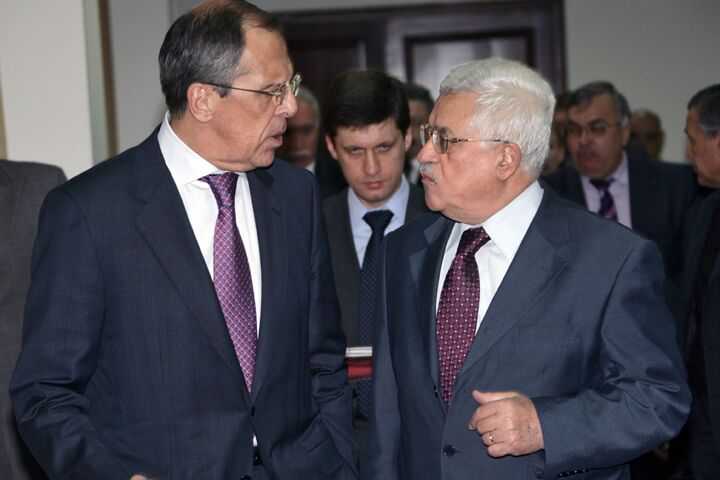
Moscow’s Middle East Strategy
Russian President Vladimir Putin and his Kremlin cohorts have proposed that a sequel to the failed U.S. Annapolis conference on Israeli-Palestinian peace be held in Moscow. Yet, if this Moscow conference is to be held this June, as suggested, Putin has a lot of preparing to do. That is why he is divvying up planning responsibilities between himself and Foreign Minister Sergei Lavrov.
On March 19, Lavrov began a three-day visit to the Middle East with the purpose of garnering support for the conference. His first stop was Syria, where he met with Khaled Mashaal—the exiled leader of the Hamas terrorist organization. Mashaal—whose organization has pledged to destroy the Jewish state—asked for Lavrov’s help in pressuring Israel to lift its blockade of Gaza, while Lavrov focused the discussion on ways to promote reunification between Hamas and Fatah.
After meeting with Mashaal, Lavrov went on to meet Syrian President Bashar al-Assad in Damascus on March 20. Assad was very excited about the prospect of a Russian-led peace conference and was even more excited about the possibility of re-launching talks over the disputed Golan Heights region, currently under Israeli control, that Syria wants for itself. “The Israeli-Syrian peace track is guaranteed to be on the agenda. Syria is very interested and is making efforts for the conference to succeed,” Lavrov commented.
Lavrov ended his trip in Israel on March 21 where, over the course of the day, he met Israeli Prime Minister Ehud Olmert, Israeli President Shimon Peres, Israeli Foreign Minister Tzipi Livni, and Palestinian President Mahmoud Abbas. Of these officials, only Abbas was excited about the proposed conference.
An Israeli-Arab peace conference hosted by the Russians would definitely be biased in favor of Israel’s Arab neighbors. Moscow is one of the few world powers actually willing to negotiate with Hamas even though the terrorist group’s core belief is that the State of Israel must be completely destroyed. That fact alone must certainly be making Israel skeptical, even though it is unlikely that any Hamas officials would actually attend the conference.
Israel has remained noncommittal to the proposed conference so far; Olmert has been very careful by not publicly supporting or condemning the idea. For now, the Israelis are just watching and waiting. Israel certainly still has the option of boycotting such a conference if it chose, but such an action would probably draw intense international criticism if Moscow is able to garner a large support base over the next few months.
Moscow certainly has the beginnings of such a support base. In addition to zealous support from the Syrians and the Palestinians, the Kremlin’s efforts are now being supported by Egypt. Egyptian President Hosni Mubarak traveled to Moscow on March 25 to meet with Putin. Both Mubarak and Putin reiterated the views that Hamas and Fatah must come to a reunification agreement and that there was definitely a need for Russia and Egypt to step in as peace mediators between Israel and the Palestinians.
“We are holding talks with the Americans, Israelis and Arabs” on the issue, Putin said.
It remains to be seen if plans for a Moscow conference will actually materialize, but regardless, Russia is exerting itself as an influential force in the Middle East. Why?
One Israeli government sourced summed up Moscow’s agenda this way: “For the Russians, we are just a small pawn in the greater game. They are going to go ahead with the conference no matter what we say, knowing we will have no choice in the end but to go along.”
Attempts to reconcile a Palestinian power base and create Arab solidarity rank high on Putin’s agenda, not because these attempts will help Middle East peace, but because they undermine America. Putin obviously knows that Israel and Hamas cannot come to a peaceful agreement through dialogue—Hamas terrorists do not even recognize Israel as existing and are willing to give their lives in an attempt to destroy it. What Putin does know is that by empowering Israel’s enemies, he can help keep America bogged down in the Middle East peace process for years to come.
As long as America is distracted in the Middle Eastern conflicts, Russia is free to continue its rise to power. Russia is doing exactly as the Soviet Union did during the height of the Cold War: empowering the Palestinians in an attempt to undermine America’s position in the Middle East.
For more information on how America’s enemies are uniting against it, read “Superpower Under Siege.”
